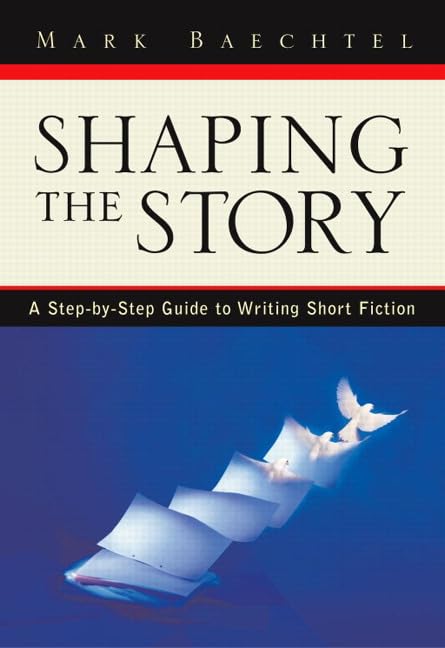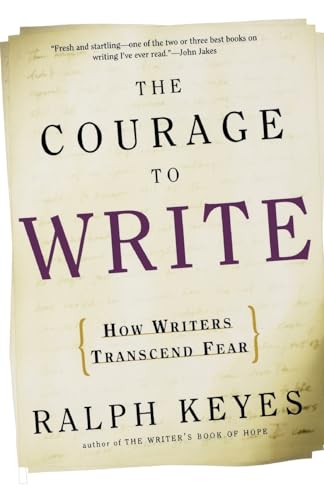Miraculous Fiction Writing Books
Discover the best miraculous fiction writing books to inspire your creativity. Explore top picks for crafting enchanting stories and mastering the art of magical storytelling.

Book
The Artist's Way
by Julia Cameron
The Artist's Wayis the seminal book on the subject of creativity. An international bestseller, millions of readers have found it to be an invaluable guide to living the artist's life. Still as vital today-or perhaps even more so-than it was when it was first published one decade ago, it is a powerfully provocative and inspiring work. In a new introduction to the book, Julia Cameron reflects upon the impact of The Artist's Wayand describes the work she has done during the last decade and the new insights into the creative process that she has gained. Updated and expanded, this anniversary edition reframes The Artist's Wayfor a new century.

Book
Becoming a Writer
by Dorothea Brande
A reissue of a classic work published in 1934 on writing and the creative process, Becoming a Writer recaptures the excitement of Dorothea Brande's creative writing classroom of the 1920s. Decades before brain research "discovered" the role of the right and left brain in all human endeavor, Dorothea Brande was teaching students how to see again, how to hold their minds still, and how to call forth the inner writer.

Book
Fiction Writer's Workshop
by Josip Novakovich
Master the Elements of the Writing Workshop &break;&break;The great paradox of the writing life is that to be a good writer, you must be both interested in the world around you and comfortable working in solitude for hours on end. Fiction Writer's Workshop is designed to help you foster a strong sense of independence–of being and thinking on your own, of becoming self-evaluative without being self-critical–in order to accomplish what others seek in classroom groups. &break;&break;In this comprehensive guide, award-winning writer and teacher Josip Novakovich explores every aspect of the art of fiction and provides all the tools and techniques you'll need to develop day-to-day discipline as well as a personal writing style, such as: &break;&break; More than 100 writing exercises, including dozens that are new to this edition, that challenge you to experiment with diverse writing styles&break; Specific statements of purpose for each exercise, to help guide you and instruct you at every step of the creative process&break; Self-critique questions to help you assess your work and identify strengths and weaknesses before moving on to the next lesson&break; The full text of eight acclaimed short stories, with analysis and exercises, to provide models for your own writing and help reinforce the lessons you've learned &break;&break;The practical, insightful methods offered in this workshop will clarify your voice, broaden your perspective, and strengthen your fiction.

Book
Live Writing
by Ralph Fletcher
This book is based on the simple idea that every writer has a "tool box." Instead of awls and hammers, a writer's toolbox contains words, imagination, a love of books, a sense of story, and ideas for how to make the writing live and breathe. I wrote this book to give you some practical strategies to throw into your toolbox. I hope you'll try them, because these are ideas that can make you a better writer. This book is titled Live Writing, and you may be wondering what I mean by that. Most of us have read (and written!) the opposite kind of writing-dull, drab language that sounds about as interesting as a city phone book. By "live writing" I mean the kind of writing that has a current running through it-energy, electricity, juice. When we read "live writing", the words seem to lift off the page and burrow deep inside us.

Book
Shaping the Story
by Mark Baechtel
Shaping the Story teaches beginning fiction writers to hone their craft with a unique, step-by-step approach to writing a short story. Stepping students through an interlocking set of twelve easy-to-follow exercises Shaping the Story helps the beginning fiction writer understand the ways a short story changes and grows as it moves from its often-vague beginnings through a satisfying ending. As students step through the process, they learn about development of theme, point of view, voice, setting, character, dialogue, scene, plot, the treatment of time, and the crafting of satisfying endings. The text also offers an additional 48 skill-building exercises--four per chapter--plus an anthology of thirteen carefully chosen stories, which, through reading and analysis, will bring the book's lessons vividly to life.

Book
The Marshall Plan for Novel Writing
by Evan Marshall
Imagine writing with the skill of a published author, the knowledge of a seasoned editor and the savvy of a New York literary agent....you'd have all the know-how it takes to transform your story idea into a novel worthy of praise and publication. In this unique guide, agent, editor and novelist Evan Marshall does give you everything it takes to write your novel. Drawing on his extensive experience, Marshall has perfected a simple and methodical approach to novel writing. His clear-cut, 16-step "Marshall Plan" breaks down the complex novel-writing process into a series of parts you put together one piece at a time. You'll have your whole story planned and plotted before you actually begin writing, so there's no chance of working yourself in a corner or making critical mistakes in pacing and plot. In short, The Marshall Plan for Novel Writing works. Use it, and watch your story masterfully develop into a completed manuscript ready to get the full attention of readers, agents and editors alike.

Book
The Marshall Plan Workbook
by Evan Marshall
The Marshall Plan Workbook, companion volume to the very successful Marshall Plan for Novel Writing, focuses on building a novel's plot, with more than 100 pages of fill-in sheets that become a veritable blueprint for each reader's novel. The Marshall Plan Workbook pushes deeper into the process of writing a novel scene by scene. Readers will learn to craft intriguing story goals and compelling conflicts all within a specific framework that enables them to produce any type of novel in a systematic yet creative way. They'll also learn the ins-and-outs of selling their work once it's finished. * Lively, interactive approach makes the book fun as well as educational * Easy-to-follow instruction takes the mystery--but not the creativity--out of writing a novel

Book
Dynamic Characters
by Nancy Kress
A truly unforgettable story is defined by its characters. Their motivations, their changes, their actions compel us to read on, anxiously trying to discern what will happen next. In Dynamic Characters, award-winning author and Writer's Digest columnist Nancy Kress explores the fundamental relationship between characterization and plot, illustrating how vibrant, well-constructed characters act as the driving force behind an exceptional story. Kress balances her writing instruction with hands-on checklists to help you build strong characters from the outside in. Blending physical, emotional and mental characterization, you'll learn to create characters that initiate exciting action, react to tense situations, make physical and emotional transformations, and power the plot from beginning to end.

Book
Word Painting
by Rebecca Mcclanahan
Let Rebecca McClanahan guide you through an inspiring examination of description in its many forms. With her thoughtful instruction and engaging exercises, you'll learn to develop your senses and powers of observation to uncover the rich, evocative words that accurately portray your mind's images. McClanahan includes dozens of descriptive passages written by master poets and authors to illuminate the process. She also teaches you how to weave writing together using description as a unifying thread.

Book
Elements of Fiction Writing - Beginnings, Middles & Ends
by Nancy Kress
Get your stories off to a roaring start. Keep them tight and crisp throughout. Conclude them with a wallop. Is the story or novel you've been carrying around in your head the same one you see on the page? Or does the dialogue suddenly sound flat and predictable? Do the events seem to ramble? Translating a flash of inspiration into a compelling story requires careful crafting. The words you choose, how you describe characters, and the way you orchestrate conflict all make the difference—the difference between a story that is slow to begin, flounders midway, or trails off at the end—and one that holds the interest of readers and editors to the final page. By demonstrating effective solutions for potential problems at each stage of your story, Nancy Kress will help you... hook the editor on the first three paragraphs make—and keep—your story's "implicit promise" build drama and credibility by controlling your prose Dozens of exercises help you strengthen your short story or novel. Plus, you'll sharpen skills and gain new insight into... the price a writer pays for flashbacks six ways characters should "reveal" themselves techniques for writing—and rewriting Let this working resource be your guide to successful stories—from beginning to end.

Book
No Plot? No Problem!
by Chris Baty
Chris Baty, motivator extraordinaire and instigator of a wildly successful writing revolution, spells out the secrets of writingand finishinga novel. Every fall, thousands of people sign up for National Novel Writing Month (NaNoWriMo), which Baty founded, determined to (a) write that novel or (b) finish that novel inkid you not30 days. Now Baty puts pen to paper himself to share the secrets of success. With week-specific overviews, pep "talks," and essential survival tips for today's word warriors, this results-oriented, quick-fix strategy is perfect for people who want to nurture their inner artist and then hit print! Anecdotes and success stories from NaNoWriMo winners will inspire writers from the heralding you-can-do-it trumpet blasts of day one to the champagne toasts of day thirty. Whether it's a resource for those taking part in the official NaNo WriMo event, or a stand-alone handbook for writing to come, No Plot? No Problem! is the ultimate guide for would-be writers (or those with writer's block) to cultivate their creative selves.
